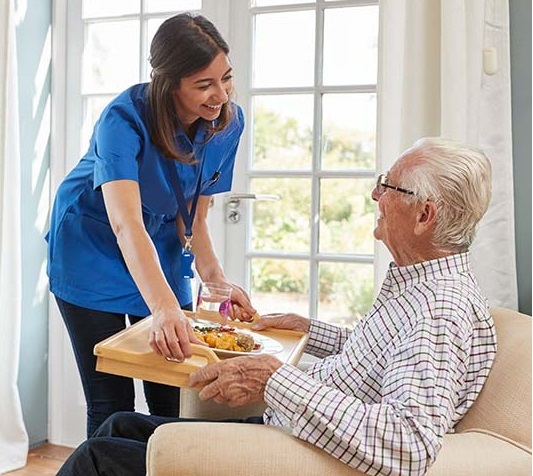It is not simple to find a reliable home care aide as this is not the kind of work that just anyone can do. Assistance with home care needs calls for specialized skills. This is why you need to take the time to go through what to look for in a home care helper with each new client who contacts us for assistance.

Finding in-home support services that possess the qualities listed above will make receiving home care for a parent or loved one a pleasurable experience for everyone involved.
Important soft skills for a caregiver from in-home support services may include:
· Patient-Focused:
Caretakers must be detail-oriented and focused on patient comfort. Ensure you’re clear about your needs and consider the elderly’s lifestyle, health, and preferences when choosing an attendant. Discuss this with attendant providers.
· Patience:
Caring for the elderly is difficult when they are irritable. Seniors move slowly, struggle with simple chores, and sometimes have brain-affecting disorders, so caregivers must be patient. The attendant should know that plans can alter, things may take longer than expected, and the patient may hesitate.
· Balanced, hands-on:
When hiring an attendant, ensure they’re aware of the patient’s issue and in a good mood. Check the attendant’s expertise in handling challenging situations and ability to grasp the elderly’s verbal and nonverbal clues.
· Punctuality:
Punctuality is crucial because the attendant’s arrival and departure will affect your schedule. Avoid travel issues by hiring local attendants. A good night’s sleep helps caregivers handle demanding tasks.
· Empathy:
Seniors don’t want pity or a caretaker who overlooks their emotional needs. Good caregivers respect the elderly’s independence but know when to take charge. A lengthy interview, reference, or training feedback might assist in identifying compassion and care.
· Responsible:
Make sure the attendant can assist you in building up a routine for the elderly, but be patient and don’t stress your loved one or the attendant. Help with medication, meals, personal care, and socializing schedules. Ensure your attendant has emergency numbers. Give explicit directions for instances you want your loved one warned about.
· Communication Skills:
Talking to the patient is easier with decent language skills. Most attendants should like assisting others and have received training in senior care. If possible, ask for a native speaker. An attendant from your language and culture might help your loved one express themselves and create a healthy bond.
